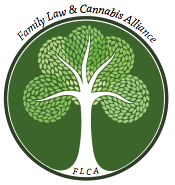MEDIA STATEMENT
FOR IMMEDIATE RELEASE
June 22, 2015
Contact: Lynn Paltrow, NAPW (212) 255-9252, info@advocatesforpregnantwomen.org
Sara Arnold, media@flcalliance.org
ACOG Committee Opinion 637: National Advocates for Pregnant Women (NAPW) & Family Law & Cannabis Alliance (FLCA) Support Call to Non-Punitive Responses to Marijuana Use By Pregnant Women
On June 22, 2015, ACOG released Committee Opinion 637, Marijuana Use During Pregnancy and Lactation recommending that health care providers advise women who are pregnant or contemplating pregnancy to avoid marijuana use “[b]ecause the effects of marijuana may be as serious as those of cigarette smoking or alcohol consumption.” [emphasis added]
For decades, medical health professionals have used a variety of medical and public health techniques, including harm reduction approaches, to address the issue of cigarette smoking and alcohol use by pregnant women. The Committee Opinion acknowledges that “there are limitations on the data on marijuana,” that many of the studies cited are based only on animal models (not humans), and that the effects of marijuana use have not been shown to be as serious as cigarette and alcohol consumption. Nevertheless, women and mothers in the U.S. who have used marijuana while pregnant are being subject to highly punitive, gender discriminatory criminal and civil penalties.
While possessing marijuana (ie, having some amount of the drug in one’s pocket, car, or home) remains criminalized in many states, use, dependence, and addiction are not criminalized by the federal government or by most states. Women who use marijuana, become pregnant, and continue those pregnancies to term, however, may be arrested for child endangerment in South Carolina and for chemical endangerment of a child in Alabama. Women in Wisconsin can be locked up for marijuana use following an initial hearing at which the fertilized egg, embryo, or fetus has a right to counsel, but not the pregnant woman. With or without laws authorizing arrests of women who become pregnant and use marijuana, women in numerous states have been arrested.
With or without statutory authority, in most states, women who become pregnant and use marijuana are also being reported to civil child welfare authorities as child abusers, subject to highly intrusive, stressful, and often hostile investigations. Many of them face allegations of abuse or neglect and are listed on the state’s central child abuse and neglect registry, which carries lifelong collateral consequences affecting their ability to obtain employment and support their families. Others face temporary separation from their child or lose custody entirely. These state interventions into families’ lives are highly discretionary and overwhelmingly target low-income mothers and women of color.
NAPW and FLCA join this Committee Opinion in urging that the same non-punitive responses to cigarette smoking and alcohol use be applied to pregnant women who use marijuana. As the Opinion states: Seeking obstetric-gynecologic care should not expose a woman to criminal or civil penalties for marijuana use, such as incarceration, involuntary commitment, loss of custody of her children, or loss of housing . . . Drug enforcement policies that deter women from seeking prenatal care are contrary to the welfare of the mother and fetus.
We also call on the government to support unbiased research regarding marijuana use during pregnancy, considering both potential benefits as well as potential harms from its use. See e.g. Rachel E. Westfall et al, Survey of medicinal cannabis use among childbearing women: Patterns of its use in pregnancy and retroactive self-assessment of its efficacy against ‘morning sickness,’ Complementary Therapies in Clinical Practice (2006) 12, 27–33; Melanie C. Dreher, et al., “Prenatal Marijuana Exposure and Neonatal Outcomes in Jamaica: An Ethnographic Study,” 93:2 Pediatrics 254 (1994).
######
You may download this press release in PDF format (with logos) here and in .docx format (without logos) here.




